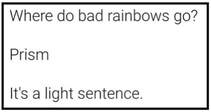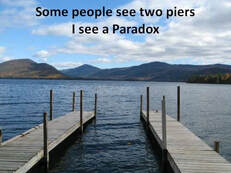Anyway, not too long ago, I ran across a reference to the fact that unusual, or at least unexpected, names have developed over the years for many sorts of animals, birds, insects, etc. Specifically, I was watching a documentary series about the Theatre Royal Haymarket in London which showed a group of actors in a rehearsal. The rehearsal being shown wasn’t going as smoothly as might be desired and one the folks involved commented that a group of actors could be referred to as a “complaint,” as in “a complaint of actors” as a generalized, group name. I should note that I CAN remember situations where I would have thought the term was well-chosen, but that’s not the point.
I found this notion quite amusing, but it got me to wondering, which got me to “researching,” which got me to cataloging a number of this sort of names just to explore this diversity. I will confess that I didn’t explore this in any great depth, but it does seem that it is most common to invent these names for non-human creatures. Occasional human examples do show up, however, as, for example, in 1776, the musical, where the character, John Adams, suggests that, “I have come to the conclusion that one useless man is called a disgrace, that two are called a law firm, and that three or more become a Congress.” I confess that, based on my personal experience in the Aquacise class which Bonnie and I attend with some frequency, one could say that, “I have come to the conclusion that one talking woman is unusual, two may be called a gossip, and that three or more become an Aquacise class.” What I find most amusing about this revelation is how many of the women in the class are retired school teachers, whom I can’t believe would have put up with so much “chatter” from their students, but that’s a different story.
Still, most of the examples which I could find referred to animals, birds, insects, water creatures, etc. Some of these are relatively well-known, like a “pride” of lions, but many were a surprise to me, and often I found them amusing. It’s also true that many of the terms I discovered have variations and/or alternatives, which I assume means that multiple names have been used over time and from place to place. Anyway, some of these struck me as unusually appropriate or amusing, so I thought I’d pass some of them along in the hope that others might find them worthy of a minute’s attention. These aren’t in any particular order, just what caught my eye as I looked over the list.
While Adams MAY be correct in believing that three worthless men become a Congress, who knew that a group of Owls was known as a “parliament,” while a group of parrots is referred to as a “pandemonium,” and a group of eagles was a “convocation?” To stick with birds for a moment, did you know that multiple falcons formed a “kettle?” While one CAN understand the desire for having different names, is it really fair that a bunch of flamingos get to be a “flamboyance,” but a group of ravens are an “unkindness?”
I suspect that we all knew that a bunch of ants were called a “colony” and bees were referred to as a “swarm,” but did you know that a group of cockroaches were called an “intrusion?”
Why, he wondered, are crows a “murder,” foxes a “skulk,” and herons a “siege?” Now hyenas being referred to as a “cackle” makes a lot of sense to me, as does porcupines being a “prickle,” and certainly more than one skunk is a “surfeit.”
BUT, why are a group of cats called a “clowder,” or a bunch of jellyfish a “smack?”
Oh, well, that’s probably enough of that sort of thing. One can only push funny names so far, after all. I still have a fair supply of language-related stuff, however, so I thought I’d add a bit of non-name-related stuff to this, just to round things out a bit.
In my defense for my love a language-related humor, I include this strip from Pickles. I’m NOT admitting that I probably look more like Earl than I wish I did these days, but I often find the adventures of Earl and Edna to be highly amusing, especially as I get older.
🖖🏼 LLAP,
Dr. B
“There can be no keener revelation of a society’s soul than the way in which it treats its children.”
— Nelson Mandela
“Words are, in my not-so-humble opinion, our most inexhaustible source of magic; capable of both inflicting injury, and remedying it.” ― Albus Dumbledore, Harry Potter and the Deathly Hallows






 RSS Feed
RSS Feed